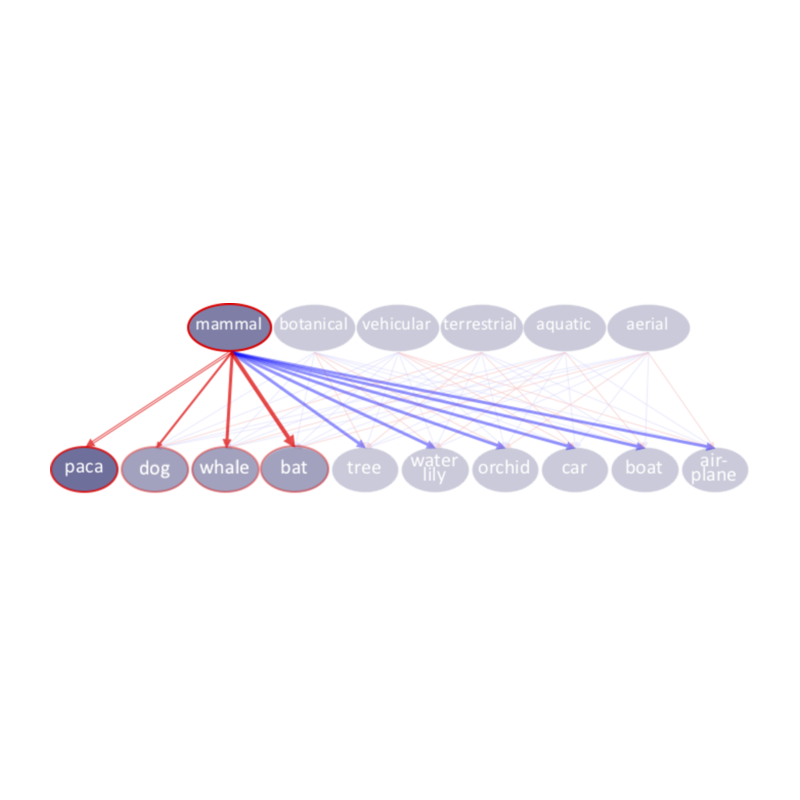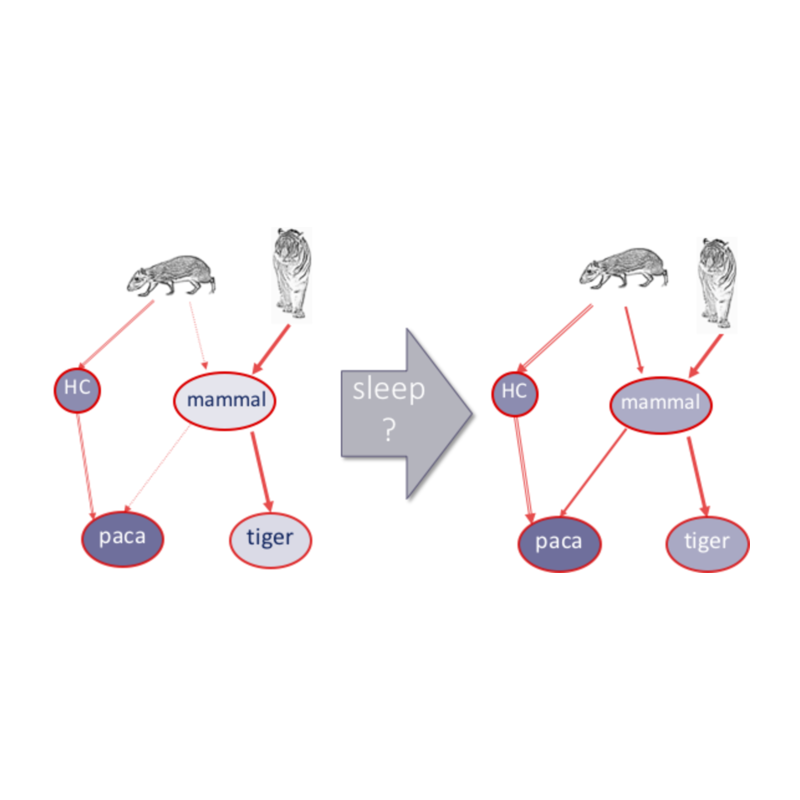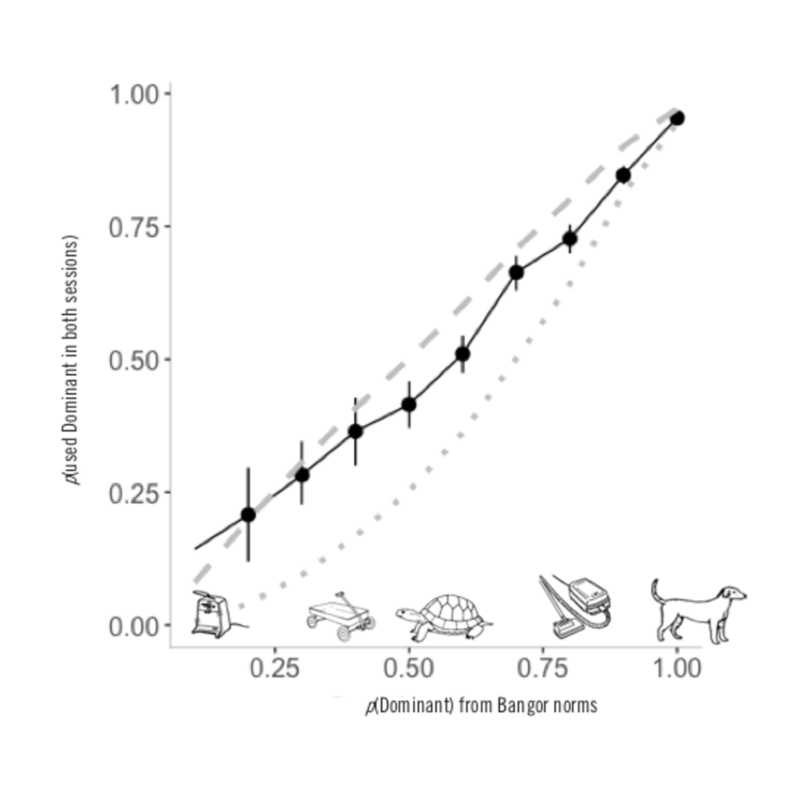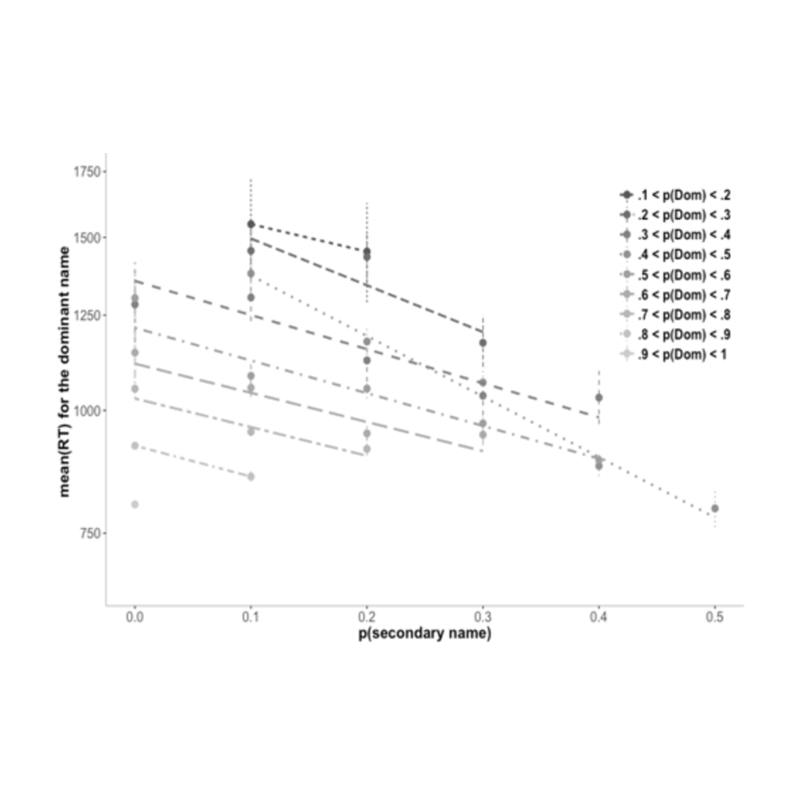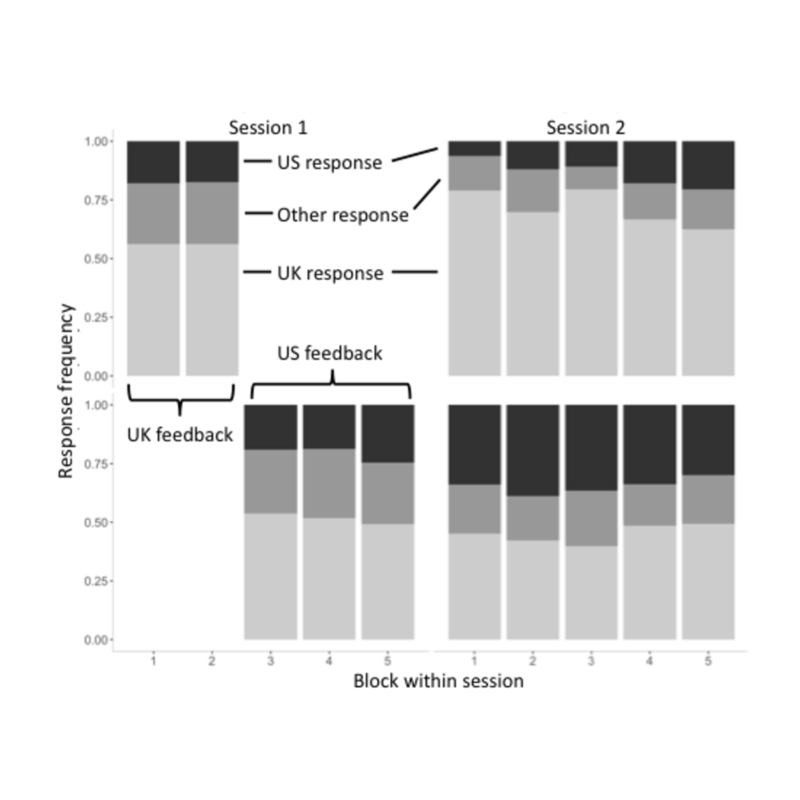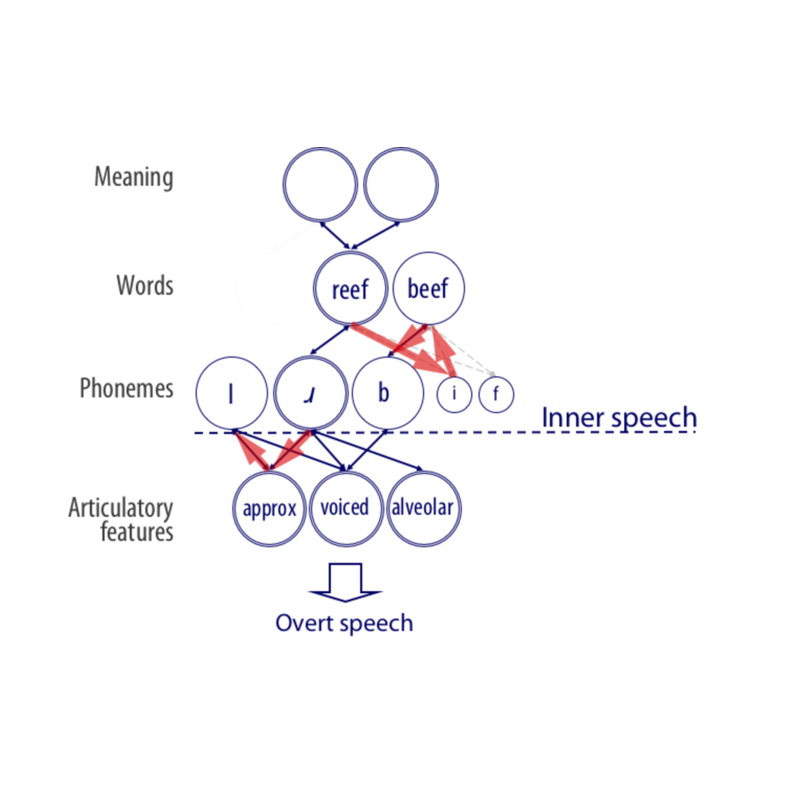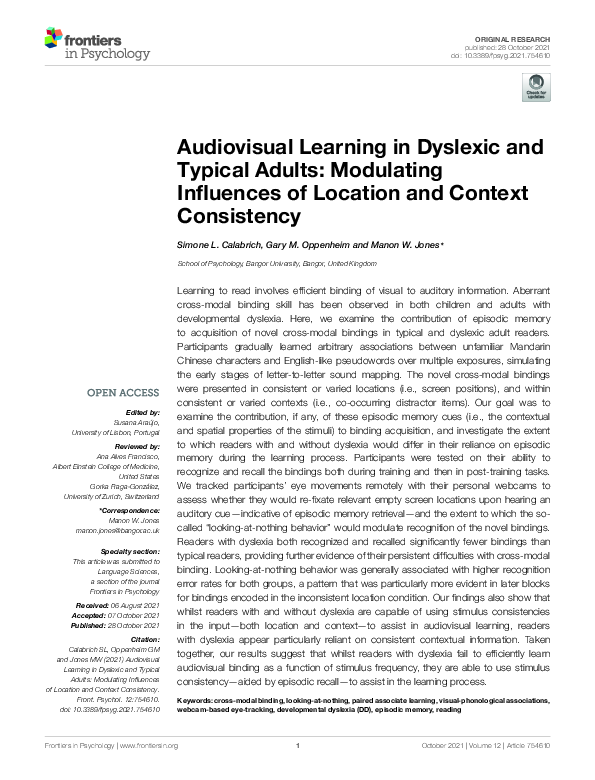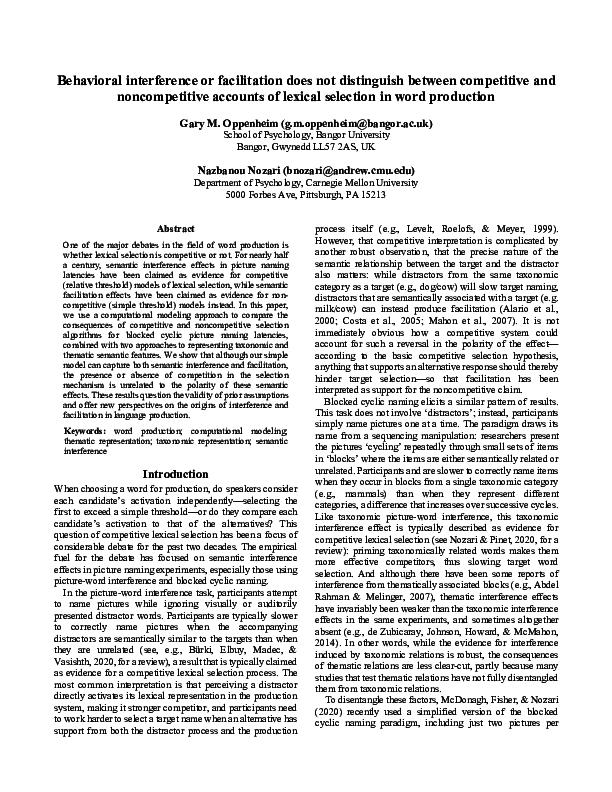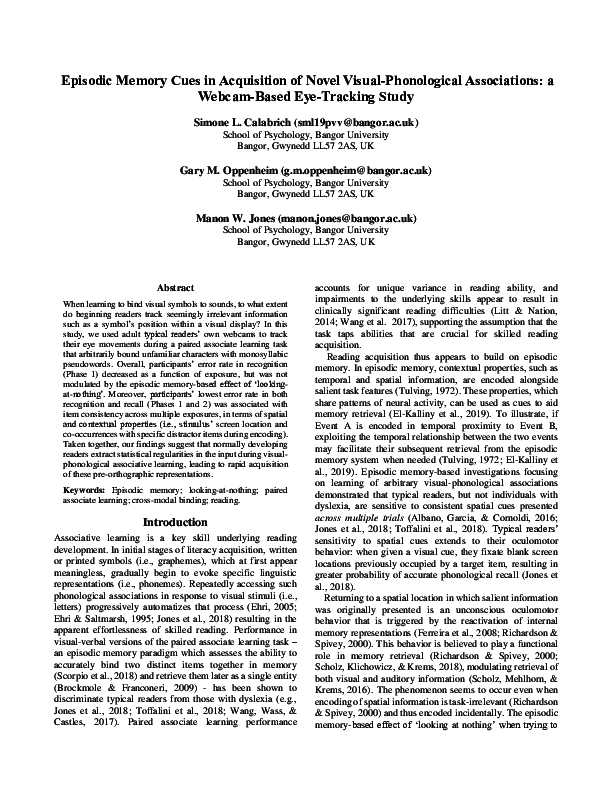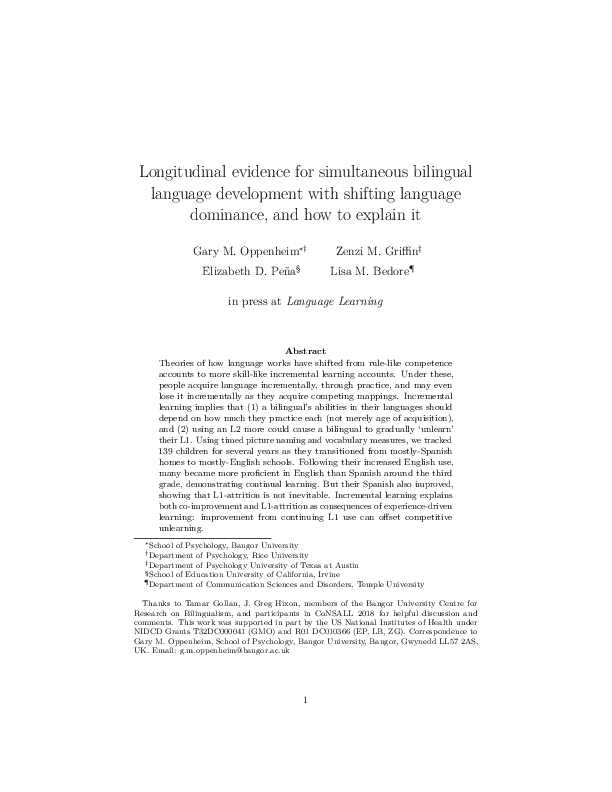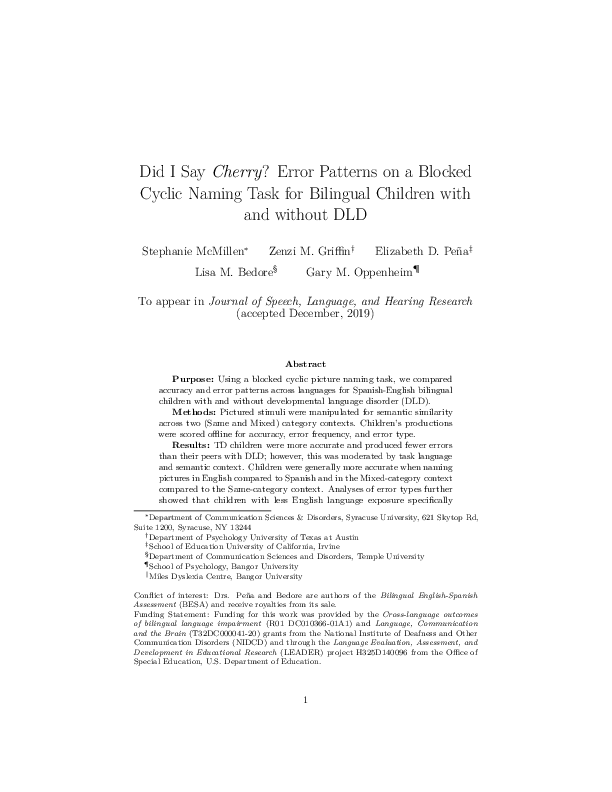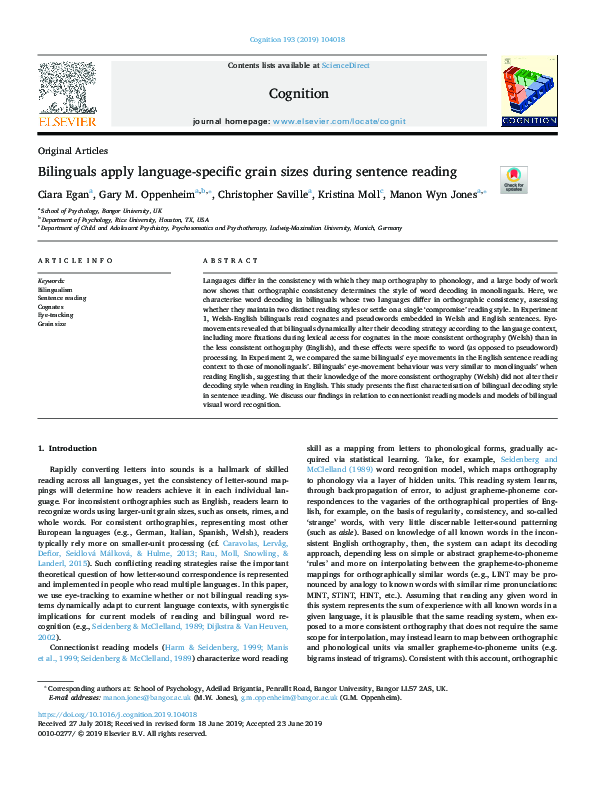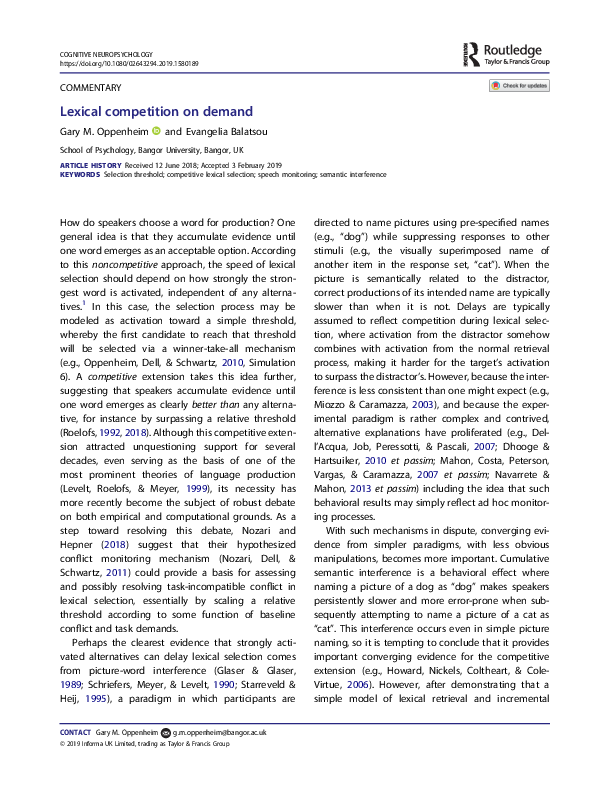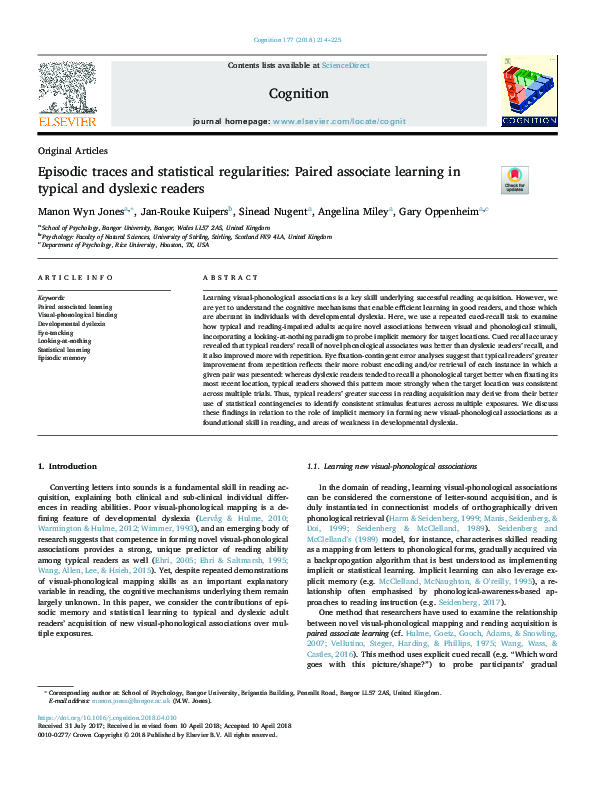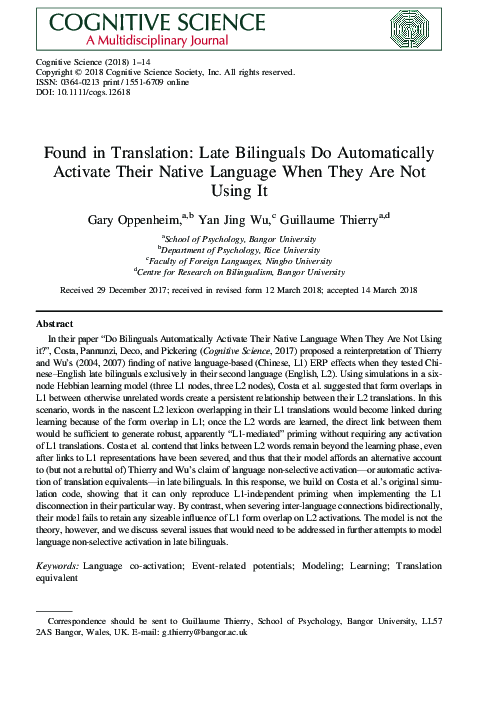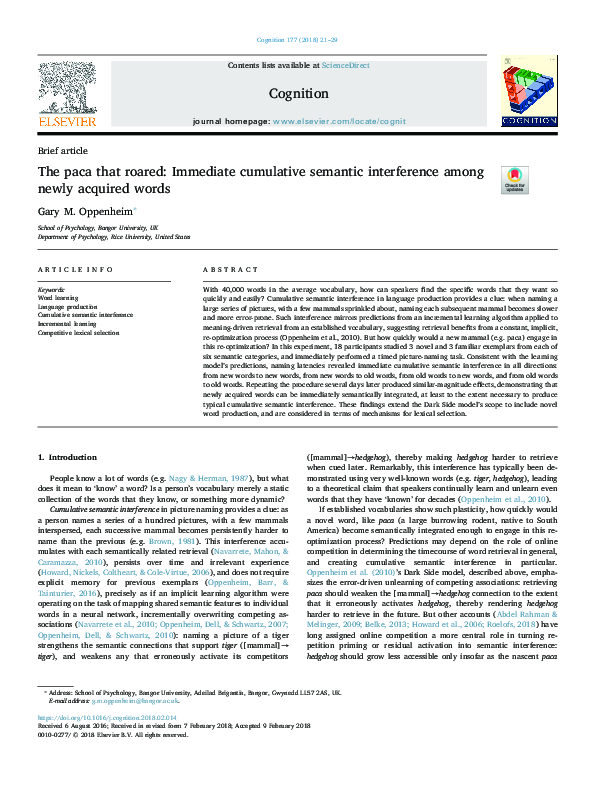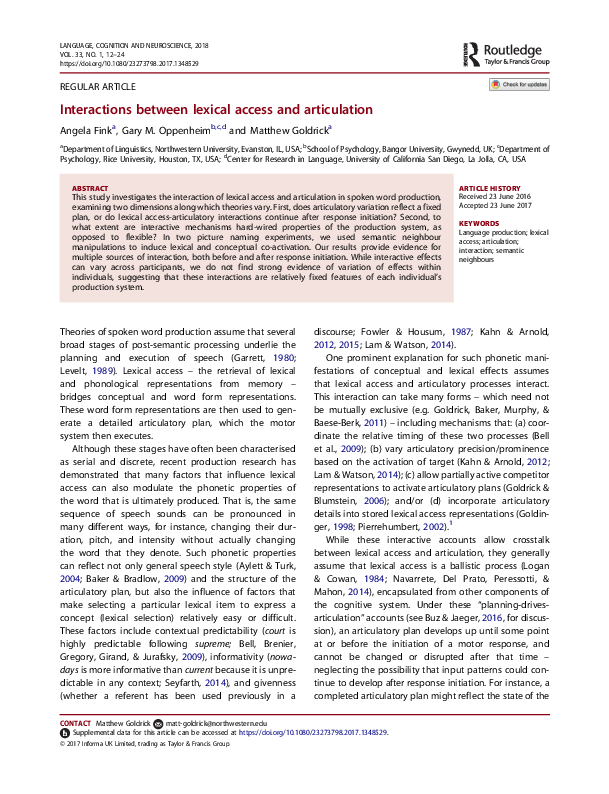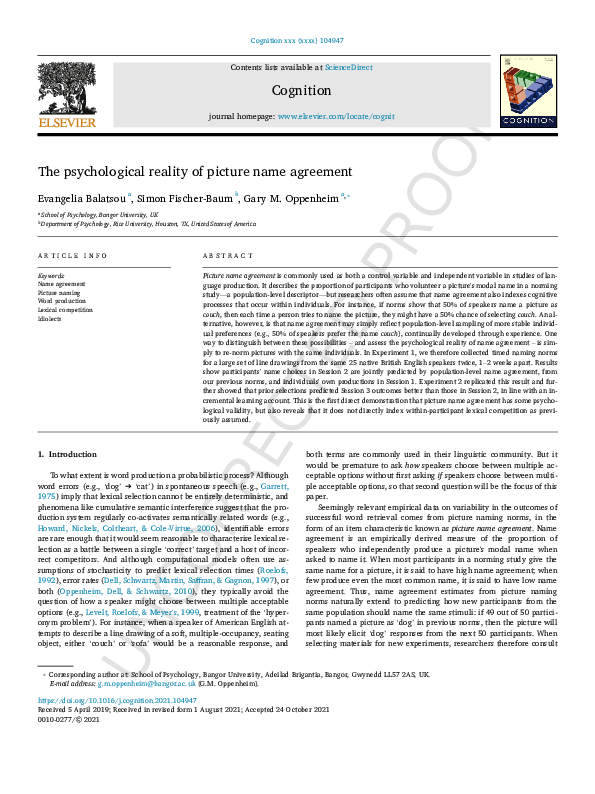
Incremental vocabulary re-optimisation
Knowing tens of thousands of words should make it difficult to find any particular word when you need it, but in laboratory experiments healthy adults can usually name a picture in less than a second. Part of the explanation for such fluency is that speakers benefit from a lifetime of practice, in two ways. First, even beyond initial acquisition, they treat each word retrieval as a learning experience, adjusting semantic-to-lexical mappings to incrementally prioritise access to the words they have needed most in the past. Second, their incremental learning algorithms weight the most recent experiences most heavily, implementing persistent adjustments that respond to changing communicative needs more rapidly than one would expect from simple accumulation alone. (Oppenheim, Dell, & Schwartz, 2007; Dell, Oppenheim, & Kittredge, 2008; Oppenheim, Dell, & Schwartz, 2010; Dell, Nozari, & Oppenheim, 2014; Oppenheim, Tainturier, & Barr, 2016; Oppenheim, 2017; Irons, Oppenheim, & Fischer-Baum, 2017; Fink, Oppenheim, & Goldrick, 2018; Oppenheim, 2018; Oppenheim, Griffin, Peña, Bedore, 2020; Oppenheim & Nozari, 2021; Balatsou, Fischer-Baum, & Oppenheim, 2021)
